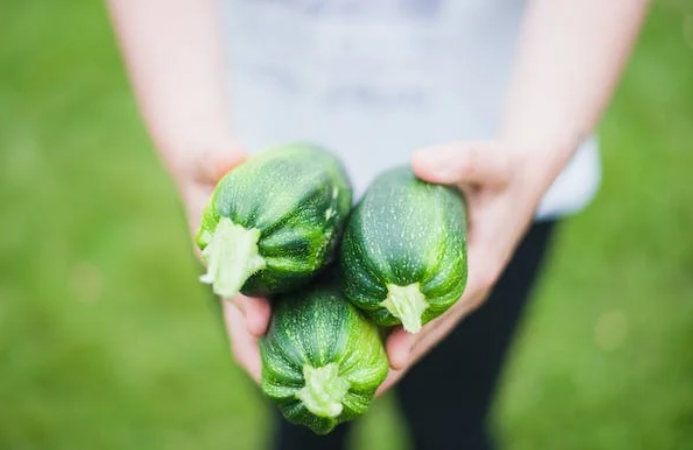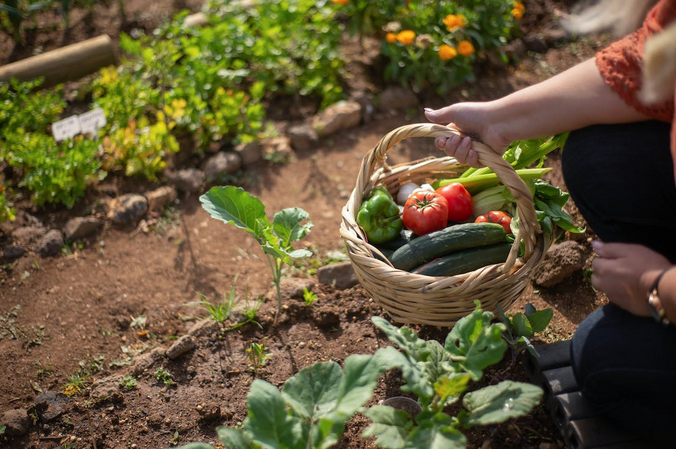The Benefits of Growing Your Own Food: A Home Gardener’s Perspective
There’s a certain magic in tending to a garden and reaping the rewards of homegrown produce. Beyond the delight of nurturing plants, growing your own food holds a treasure trove of benefits that extend far beyond the garden gate. According to the National Gardening Association, nearly 35% of all households in the United States grow food at home. This trend is not just limited to the US, as it’s a global movement. From providing fresh and nutritious produce to promoting self-sufficiency and sustainability, there are many advantages to cultivating your own food. Find comprehensive gardening guides at Aggressively Organic’s online resource.
Fresher and Nutrient-Packed Produce

Growing your own fruits and vegetables means harvesting them at peak ripeness. Based on research by the University of California, produce can lose up to 7% of its nutritional value within just a few days after harvest. When you grow your own food, you have the freedom to pick and eat it at its prime, ensuring maximum nutrient intake for you and your family. Like wine, fruits and vegetables also lose flavor as they travel long distances to reach grocery stores. When you grow your own produce, you’ll enjoy the full taste of each crop. Additionally, store-bought food often contains harmful pesticides and preservatives that can compromise our health in the long run.
Physical and Mental Health Benefits
Gardening is a form of physical activity that provides numerous health benefits. It can help with weight management, reduce stress levels, and improve cardiovascular health. Digging, planting, and weeding are all excellent forms of exercise that can help keep you fit and healthy. Furthermore, spending time in nature has been linked to reducing symptoms of anxiety, depression, and stress. Gardening can also serve as a form of mindfulness and relaxation, offering a therapeutic escape from our busy lives.
Sustainability and Environment Impact
Growing your own food promotes sustainability by reducing the carbon footprint of your meals. According to Foodwise, the average distance food travels from farm to plate is approximately 1,500 miles. This transportation contributes significantly to greenhouse gas emissions and pollution. By growing your own food, you can reduce this impact and do your part in protecting the environment. Furthermore, home gardens also help conserve water and promote biodiversity by providing a habitat for beneficial insects and pollinators.
Cost Savings
Home gardening can also save you money in the long run. While there may be some initial costs to purchase seeds, soil, and equipment, growing your own food is ultimately more cost-effective than buying produce at the grocery store. According to The National Gardening Association, a $70 investment in a garden can yield about $600 worth of produce. Imagine all the fresh and organic fruits and vegetables you can enjoy without breaking the bank.
Additional Benefits of Home Gardening
 Aside from these benefits, growing your own food also gives you control over what goes into your body. You can grow organic produce, free from harmful chemicals and genetically modified organisms (GMOs). Plus, gardening is a great way to teach children about where their food comes from and instill in them an appreciation for nature and healthy eating habits. Not to mention home gardening can also be a great way to connect with your community by sharing your excess produce with neighbors or participating in local gardening events.
Aside from these benefits, growing your own food also gives you control over what goes into your body. You can grow organic produce, free from harmful chemicals and genetically modified organisms (GMOs). Plus, gardening is a great way to teach children about where their food comes from and instill in them an appreciation for nature and healthy eating habits. Not to mention home gardening can also be a great way to connect with your community by sharing your excess produce with neighbors or participating in local gardening events.
In nurturing a garden, we cultivate more than just plants; we cultivate health, sustainability, and a deeper connection to the food on our plates. The scientific evidence supporting the myriad benefits of growing our own food echoes the sentiments of home gardeners who cherish the harvest and the wholesome experiences and rewards that bloom from their gardens.…
